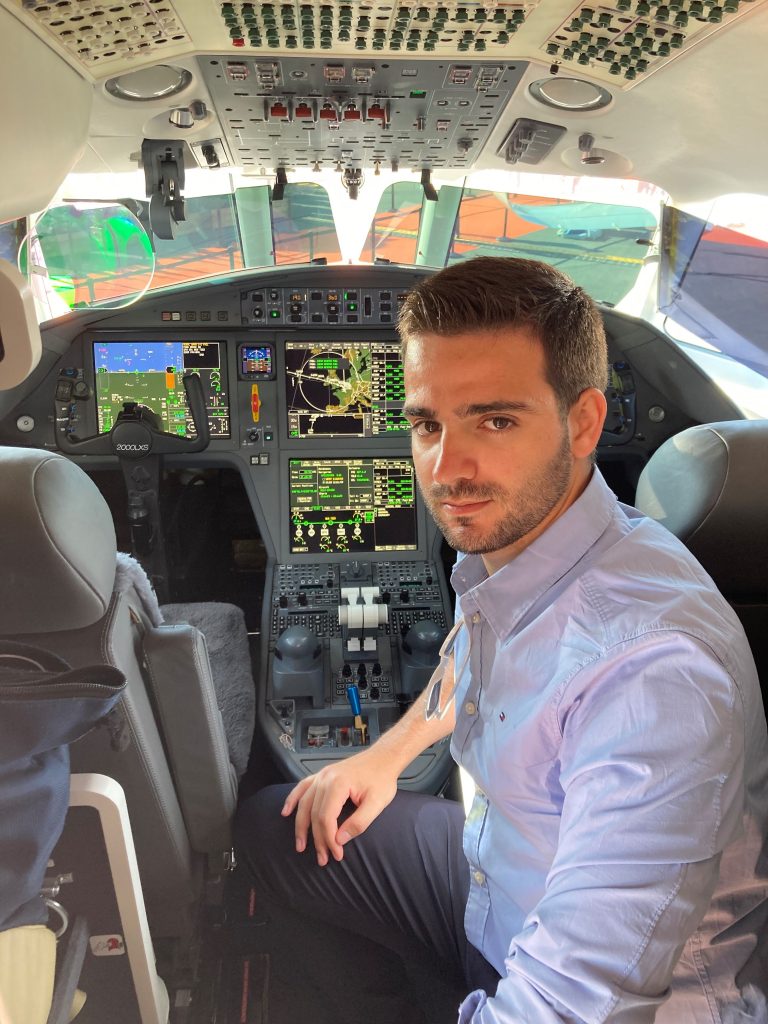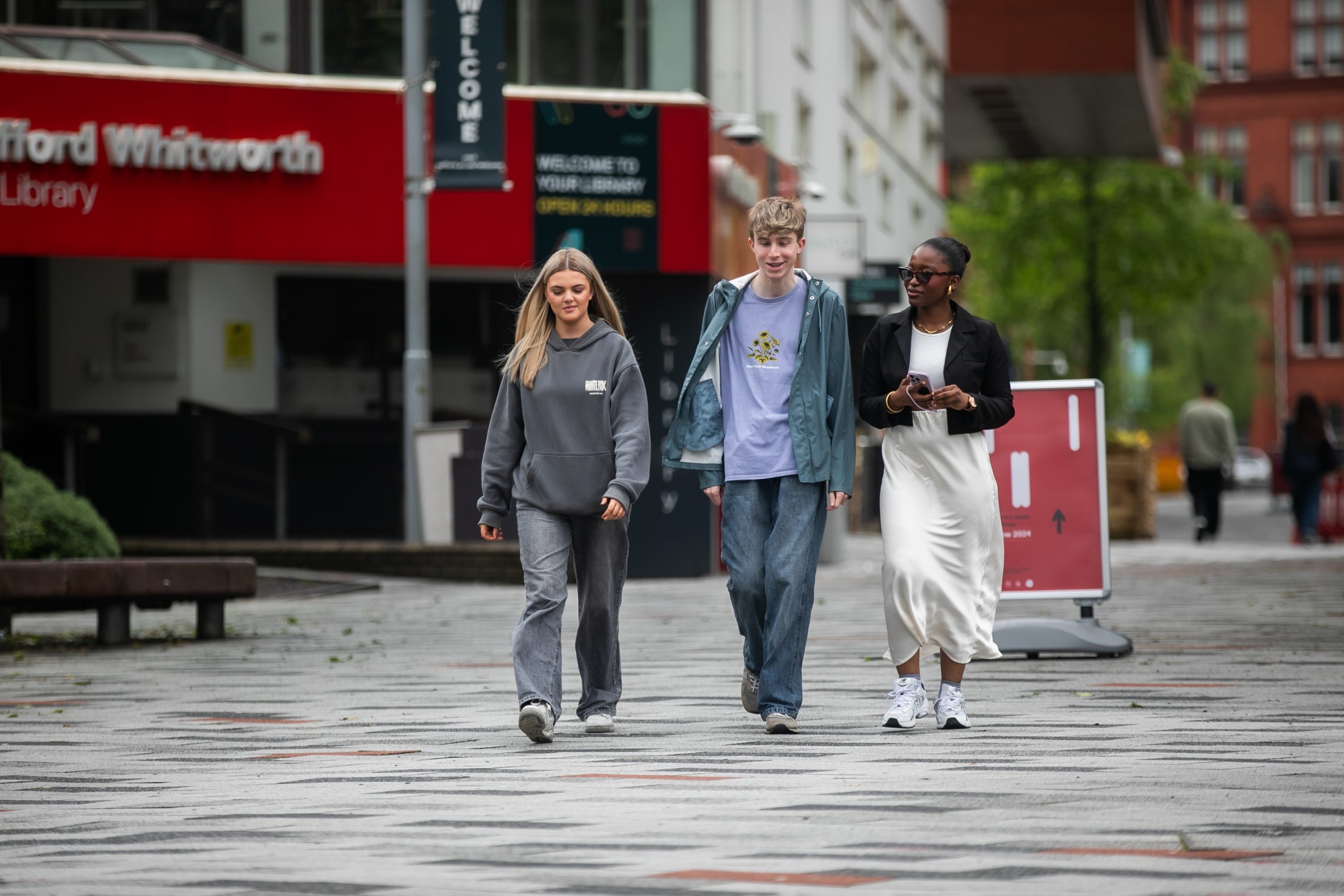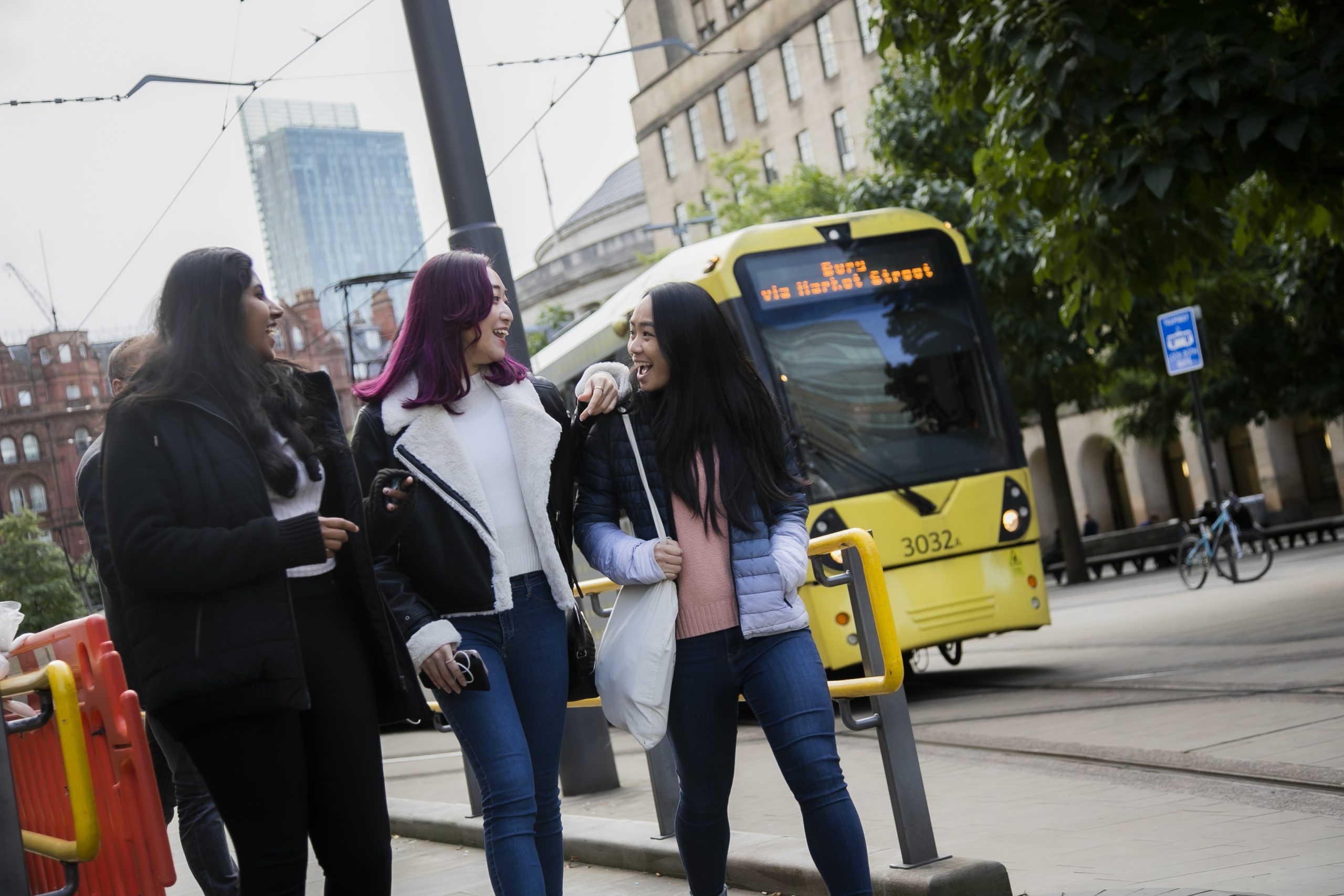Meet Vincent Vigneau, who graduated this year and studied a Masters in Robotics and Automation.
Passionate about aeronautical engineering and the military, Vincent began his engineering studies in France which led to him gaining experience abroad before coming to study in Salford. Read more about his passions and his experience at Salford.

Tell us a little about your academic background?
I obtained an Advanced master’s at ISAE SUPAERO, where I acquired essential skills in flight testing. Combined with my training at Salford, this has enabled me to create a valuable synergy in my field of interest. Apart from my studies, I’m also a pilot and part-time soldier in the Gendarmerie (a kind of police force with military status), a status that has strengthened my interest in the military aviation sector.
My previous academic background, professional experiences, and military commitments have shaped my interest, and I am constantly motivated by the desire to push the boundaries of these exciting sectors and to contribute to the technological advances that are shaping the future of aeronautics and defence.
What course did you study?
I studied MSc Robotics and Automation. This programme was an enriching experience that enabled me to deepen my knowledge and specialise in embedded systems and robotics. The modules were particularly captivating, and I had the chance to put my skills into practice by working with robots in the laboratories, particularly on projects that fascinate me, such as mobile robots and artificial intelligence.
I’m proud to have successfully completed this course, and my determination and hard work were rewarded at the end of the master’s with the prestigious SEE Dean’s Prize for Academic Excellence PGT. Receiving this award was an honour and a validation of my commitment to academic excellence.
What inspired you to choose your course and what attracted you to the University of Salford?
I knew that the fields of robotics and embedded systems were a perfect match for my interests and that this would considerably enhance my engineering training. In addition, these specialised skills are highly sought after in the world of work, particularly in France, which reinforced my choice. I’m convinced that this expertise, combined with my knowledge, will give me a head start and enable me to make a significant contribution to exciting projects in the aeronautical and military fields.
Discovering the city of Manchester during my year abroad was also a very attractive aspect of the experience. As well as experiencing a stimulating academic environment, I was able to immerse myself in British culture and life, broadening my horizons and my open-mindedness.
‘I urge students to go for it with determination and to invest themselves fully in their course, because it will open unexpected doors to a bright and exciting future in engineering fields.’
Vincent Vigneau, MSc Robotics and Automation student
Can you tell us which part of the course you enjoyed the most?
One of the aspects that particularly delighted me during my Masters was the freedom and autonomy that I was able to experience in the Salford laboratories. Being able to work with robots and manipulate them as I wished, without being constrained by cumbersome booking systems, was an incredibly rewarding experience.
This freedom allowed me to explore and test many ideas without the usual limitations. I was able to test my theories in real time and adjust my approaches as the results came in. This was a real catalyst for my creativity and innovative spirit because I could work flexibly, according to my schedule and my own inspiration.
By being able to work autonomously, I developed a real sense of responsibility and confidence in my professional abilities. It also gave me a better understanding of the ins and outs of robotics and embedded systems, reinforcing my practical understanding of the concepts studied in class.
Thanks to this experience, I have acquired a more proactive and experimental approach to my work, which has had a positive impact on my academic and professional development. I learned how to solve problems creatively and take the initiative, which is essential in aeronautical and military engineering, where innovation and flexibility are major assets.
Where do you currently work?
Working for Dassault Aviation, a prestigious flagship of the French military aeronautics industry, is a dream come true for me. Dassault is a company that I have always admired, as it occupies a unique position by being involved in aircrafts and private jets in the military and civil sectors, in the same way as Airbus. Dassault Aviation’s reputation is also based on the development and design of one of the best fighter aircraft in the world, the famous Rafale, which gave me great motivation to join this prestigious company.
Alongside my role at Dassault Aviation, I’m also proud to be serving part-time as a member of the Gendarmerie. This institution has dual dimensions, being a police force with military status. As part of my military duties, I’m involved in air investigations, particularly aircraft crashes. This mission is of vital importance, as it contributes to the safety and integrity of aviation, an area that is particularly close to my heart.
Tell us a little about your current role and your day-to-day responsibilities. Can you tell us about any of the projects you’re working on? What are you excited about?
As an engineer, I’m currently the person responsible for implementing functions to lighten the fighter pilot’s workload as part of the Future Air Combat System (FCAS), a European project equivalent to the UK’s TEMPEST project. My role is to manage in-flight mission management and develop innovative solutions to improve operational efficiency by using innovative technologies.
My skills in artificial intelligence play a key role in this process, enabling me to collaborate with other engineers and mentor them in the implementation of these new functionalities. I can’t go into more detail because of confidentiality issues.
I’m enthusiastic about the idea of contributing to this major project and other exciting projects, including working on the future aircraft that will succeed the Rafale. It’s an incredible opportunity to use my engineering skills and contribute to the design of a new aircraft.
What advice would you give to prospective students and those seeking a career in this field?
If I had to give one piece of advice to students who aspire to work in a field similar to mine, I’d tell them not to be afraid of work, because there are so many opportunities out there! It’s essential to be open-minded and daring, and to get out of your comfort zone.
Military aeronautics and engineering are exciting and constantly evolving fields, where innovation is at the heart of every project. By daring to think outside the box, you can discover new perspectives and make a real contribution to large-scale projects.
It’s a demanding but hugely rewarding course, where passion and commitment are rewarded with unique opportunities and achievements that are shaping the world of aviation. So, I urge students to go for it with determination and to invest themselves fully in their course, because it will open unexpected doors to a bright and exciting future in engineering fields.
Read more about studying a Masters in Robotics and Automation.






Leave a Reply